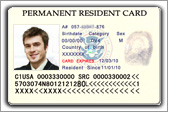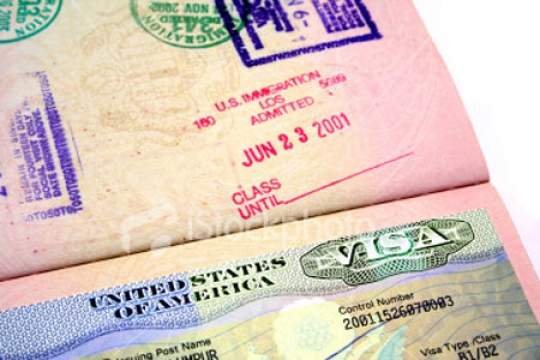Immigration News & Updates eNewsletter
eNewsletter
POSTING DATE: APRIL 17, 2013
Learn More About:
This Week's Immigration News
Immigration News & Updates eNewsletter © 2011 - 2013
For questions about U.S. Residency, Green Cards and Immigration Visas, Visit our Website at: www.ImmigrateToday.com or call our office at: (954) 382-5378
The highly anticipated Immigration Reform proposal has finally been released, providing sweeping changes to the entire U.S. Immigration system. Called the “Border Security, Economic Opportunity, and Immigration Modernization Act of 2013,” the Bill includes new measures for border security, the legalization of millions of immigrants, an overhaul of the family and employment immigration system, as well as the establishment new work visas.
Here are a few Highlights of the Immigration-related provisions of the Bill:
**** SPECIAL ISSUE **** BREAKING NEWS ****
Comprehensive Immigration Reform Bill Introduced In Senate
Legalization – a new “Registered Provision Immigrant” (RPI) status provides legal status, a “biometric work authorization card” and permission to travel abroad.RPI status is for 6-yrs, renewable for 6 more. After enactment, the application period will be for 1 yr with a possible 1 yr extension.
Who Qualifies: all immigrants inside the U.S. who came before Dec 31, 2011, provide proof that they have remained here and are currently NOT in legal immigration status. This also includes:
1) Immigrants in proceedings or with removal orders
2) Spouses & children of RPI’s who are in the U.S. even if they were NOT in the U.S. before Dec 31, 2011and
3) Certain deportees outside the U.S. if they are the Spouse, Minor Child or Parent of U.S. Citizen or Resident or qualifying DREAMer.
Penalty & Fees:
1) $500 penalty fee & USCIS filing fees for initial RPI status
2) $500 penalty for renewal. DREAMers are exempt.
DREAMers:
The Bill provides special provisions for DREAMer Immigrants who qualify for "Deferred Action" under the Childhood Arrivals Program. In addition to being exempt from the $500 penalty required to obtain “Registered Provision Immigrant” status, DREAMers are eligible to apply for U.S. Residency after holding RPI status for 5 years, rather than the 10 years required of other immigrants under the new law. DREAMers are further then eligible to apply for U.S. Citizenship immediately after obtaining a Green Card.
Who is NOT Eligible: Those
1) convicted of a felony,
2) 3 or more misdemeanors,
3) a foreign offense,
4) those who voted illegally; and 5) those deemed Inadmissible for Criminal, National Security, Public Health, or other morality grounds.
Green Cards :
After holding RPI status for 10 yrs, immigrants who pay a $1,000 penalty fee are eligible to apply for U.S. Residency through a Merit Based System after living & working regularly in the U.S.,(or attended school), paying all taxes due and having knowledge of Civics & English.
U.S. Citizenship:
Once Green Card holders have held U.S. Residency status for 3 years, they are eligible to apply for U.S. Citizenship. This brings the total time from “Registered Provision Immigrant” to Naturalized U.S. Citizen up to 13 years to complete the entire process.
"IMMEDIATE RELATIVE" Benefits For Spouses & Minor Children of U.S. Residents:
The new Bill confers a special status to Spouses and minor children of U.S. Residents (Green Card holders) which is currently now only provided to Spouses and minor children of U.S. Citizens. Immediate Relatives are a category of immigrants which are exempt from any limitation of immigrant visas. That means that while every other family member must wait in a visa line which is subject to quotas (yearly limits), these immigrant do not. Providing “Immediate Relative” status to these loved ones of Green Card holders has far reaching benefits, which may include:
Reduction of Waiting Times for Family Members:The Bill would increase the number of immigrant visas available for family members who are already waiting in long lines due to visa quotas. Long waiting times are caused by too few visas and a high demand from family members. As an example, the F4 category for Brothers & Sisters of U.S. Citizens has a line of 12+ years for most countries. And for countries like Mexico & the Philippines, it is more like a "retirement plan", since the waiting times are approximately 20 to 26 years!
Increased Visas For Employment-based Legal Immigration:
The bill  eliminates limits on immigrant visas for dependant Spouses and Children (called "derivatives") of Employment-based Immigrants which will result in more visas being available in the employment-based category in general.
eliminates limits on immigrant visas for dependant Spouses and Children (called "derivatives") of Employment-based Immigrants which will result in more visas being available in the employment-based category in general.
Other immigrants will now be exempt from immigrant visa limitations, which include:
1) aliens of extraordinary ability in the sciences, arts, education, business or athletics;
2) outstanding professors and researchers;
3) multinational executives and managers;
4) doctoral degree holders in any field; and
5) certain physicians..
Employment-based Immigrant Visas will be increased 40% for:
1) members of the professions holding advanced degrees (EB-2) or their equivalent in the sciences, arts, professions, or business by an employer in the United States (including certain aliens with foreign medical degrees) and
2) aliens who have earned a master’s degree or higher (EB-2)in a field of science, technology, engineering or mathematics from an accredited U.S. institution of higher education and have an offer of employment in a related field and the qualifying degree was earned in the five years immediately before the petition was filed.
3) skilled workers, professionals, and other professionals (EB-3).
This will eliminate many of the long waiting lines for an immigrant visa in these categories,
Startup Visa for Foreign Entrepreneurs:
Creates a Startup Visa for foreign entrepreneurs to be able to immigrate to the U.S. through their own companies.This will encourage investment in the U.S. business economy and emploly U.S. workers.
Creation of a Merit Based Visa System:
As so called "merit" based visa will be created in phases during the next 5 years which will allow immigrants to be awarded points toward U.S. Residency based upon certain criteria including: education, employment, length of residence in the US, special talents and those with family here in the U.S..
The first Phase will begin on October 1, 2014 for employment-based visas that have been pending for three years, family-based petitions that were filed prior to enactment and have been pending for five years, long-term alien workers and other merit based immigrant workers.
The second Phase will begin in 2015 and span to 2021, spouses and children of permanent residents will be automatically converted to immediate relatives. Other phases will be implemented in the coming years to allocate visas according to a not as yet, determined, specific formula.
H-1B Work Visas:
H-1B Work Visas will increase from the current 65,000 to 110,000, and 25,000 for those with U.S. College Master's Degrees or higher. Tougher regulations and enforcement of Employers and increased eligibilty requirements will be implemented to ensure that foreign workers are not taking jobs from U.S. Workers.. Under the proposal, some H-4 Spouses will be permitted to work as long as the spouses country accords the same benefits to U.S. spouses in the foreign country.
W-Visa Program:
Creates a New W-Visa Program for Lower-Skilled Workers in the service and agricultural sectors. Employers will be required to register and meet certain qualifications. The spouse and minor children of the W visa holder will be allowed to come and live and in the U.S. during the period of the primary spouse’s W Visa. The W Visa will be issued for 3 years with renewal for additional 3 year periods.
Employers will be required to register and meet certain qualifications. The spouse and minor children of the W visa holder will be allowed to come and live and in the U.S. during the period of the primary spouse’s W Visa. The W Visa will be issued for 3 years with renewal for additional 3 year periods.
The Agricultural Job Opportunity, Benefits, and Security Act For Agricultural Workers:
This provision is aimed at undocumented farm workers who currently work in the agricultural industry in the U.S... Agricultural workers who work through the new Agricultural Card will have the opportunity to qualify for a Green Card in 5 years. They will be required to show that they have paid all taxes & pay a $400 fine. Spouses and minor children would receive derivative status. A new agricultural guest worker visa program will be established for future agricultural workers called a W-3 visa for those who can work for any agricultural company and W-2 visa for those who are hired by agricultural companies on a contract basis.
Biometric Work Authorization Cards & Employment Verification:
So What Happens Next???
The House is expected to introduce its own Immigration Bill shortly and the two Immigration Bills will move through committees, get amended, debated and voted on by both chambers, then provisions of the final House & Senate Bills will be incorporated in a final Immigration Reform Bill that President Obama signs into law. I will keep you updated…Stay tuned….
You can obtain a free copy of our Immigration Reform Legalization explanation & advice about applying as a “Registered Provision Immigrant”
by calling our office at: (954) 382-5378.
1) Allowing Spouses and minor children of U.S. Residents outside the U.S. to immigrate to the U.S. immediately without quotas. This will reduce the waiting time from over 2 years to 8-12 months necessary for Consular Processing;
2) Allowing Spouses and minor children of U.S. Residents inside the U.S. to immediately apply to adjust status to U.S. Residency and remain in the U.S. during processing;
3) Allowing Spouses and minor children of U.S. Residents inside the U.S. who have expired I-94 cards to immediately apply to adjust status to U.S. Residency and remain in the U.S. during processing;
Married Children of U.S. Citizens, including their spouses and minor children under age 21:
The first category of Family Members who will no longer be able to immigrate are those married children of U.S. Citizens over age 30. Under the proposal, only Married Sons & Daughters of U.S. Citizens who are age 30 or under remain eligible to immigrate to the U.S. through thier U.S. Citizen Parent.
Brothers & Sisters of U.S. Citizens, including their spouses and minor children under age 21:
,
The second cateory of Family Members who will no longer be able to immigrate are Brothers & Sisters of U.S. Citizens. While experts say that "its never done until it done", the word is that this category will likely be eliminated and there may be few possibilities that it will survive heated Congressional negotiations.
ELIMINATION OF SOME FAMILY IMMIGRATION CATEGORIES AND CANCELLING THE YEARLY DIVERSITY VISA LOTTERY
The Diversity Visa Lottery "Green Card Lottery"
The final immigration category to be eliminated is the yearly Diversity Visa Lottery, sometimes known as the "Green Card Lottery". The existing winners of the 2013/2014 lotteries will still receive U.S. Residency, however the proposal plans to cancell any further lottery programs for future years. .
The Diversity Immigrant Visa program is a congressionally mandated lottery program which allows 55,000 qualifying winners from many countries around the world to receive Green Cards.
Unfortunately the Bill will also eliminate certain Family Members and others from qualifying to immigrate to the U.S.. As always, Immigration Reform is politicized, so there is a chance that these provisions will be dropped during Congressional negotiations. However, for now, the feeling is that families should prepare for the liklihood of these categories being eliminated and file for loved ones now.
Expansion of the V-Visa:
Expansion of the current V visa to allow family members outside the U.S. with approved I-130 Family petitions to come and live inside the U.S. in order to process for U.S. Residency and allow certain other family members to visit the U.S. for up to 60 days per year.
The Bill Creates Other New Benefits and Categories
Click Below to read:



























